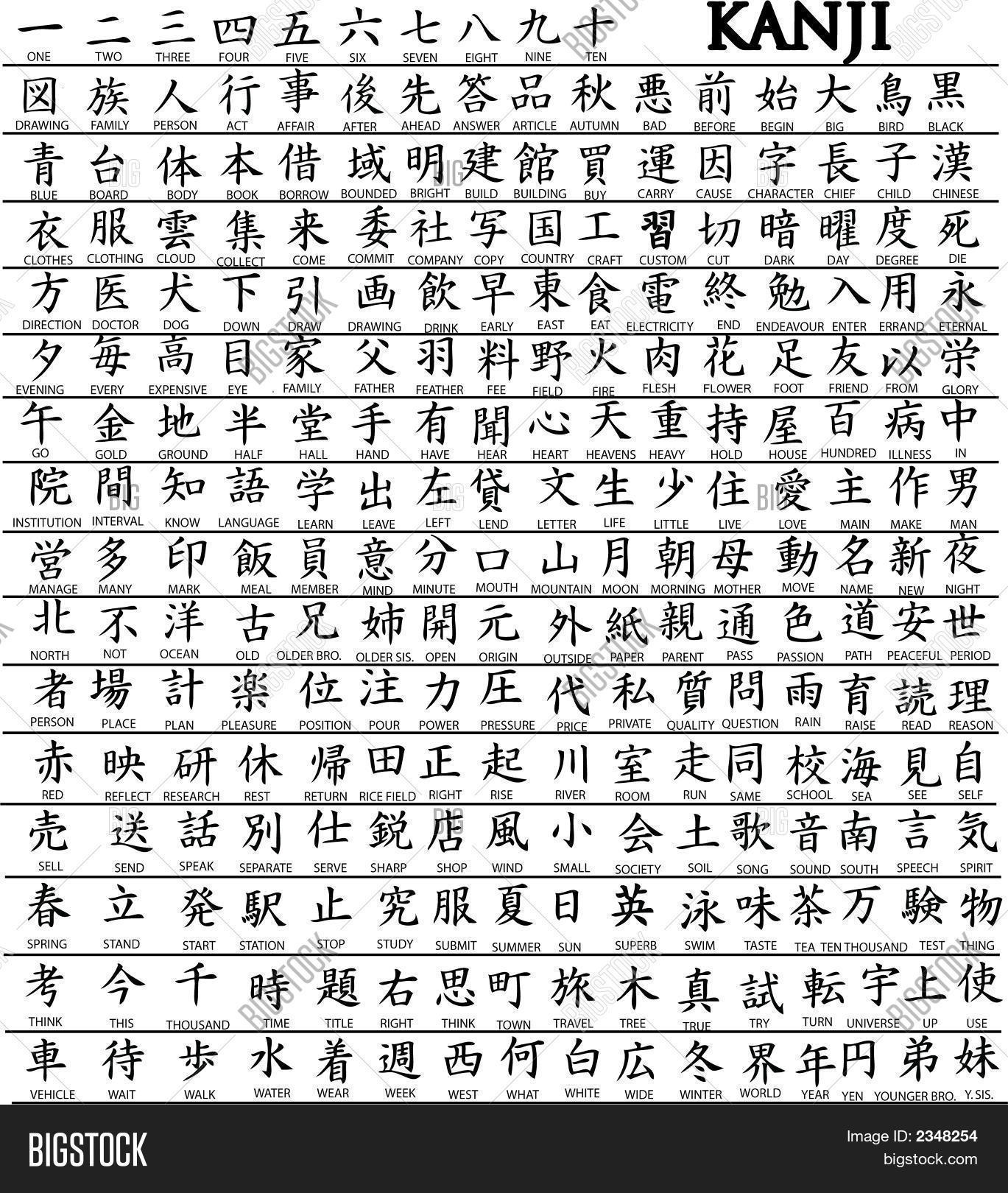
kanji alphabet chart oppidan library printable katakana and hiragana
[ の 飲 · ん · で] » Negative te-form 飲 まなくて [ の 飲 · ま · な · く · て] » Adverbial Negative Form 飲 まなく [ の 飲 · ま · な · く] » Plain Form Present Indicative Form 飲 む [ の 飲 · む] » Present Indicative Negative Form 飲 まない [ の 飲 · ま · な · い] » Past Indicative Form 飲 んだ [ の 飲 · ん · だ] »

Kanji Collection Stock Image Image 13316171
English Meaning (s) for 食べます. ichidan verb, transitive verb. to eat. to live on (e.g. a salary); to live off; to subsist on. * Please note, you are viewing the Japanese readings in the polite present indicative form, while the english meanings are based on the dictionary form. Add to .

Pin by Jrock USArock on Rie a.k.a.Suzaku Huruf, Huruf kristik, Jepang
① You will have trouble finding the verbs in the dictionary. Just try with 食 た べます (tabemasu). You won't find such entry, because the dictionary form is 食 た べる (taberu, to eat). ② You will not be used to conjugating verbs, and it will be harder to learn the other forms.

Vamos memorizar um Kanji e seus traços?Você sabe usar o Hashi? Aula
taberu - 食べる (たべる) : a verb meaning 'to eat' in Japanese. The definition and meaning are simple and clear, I think.
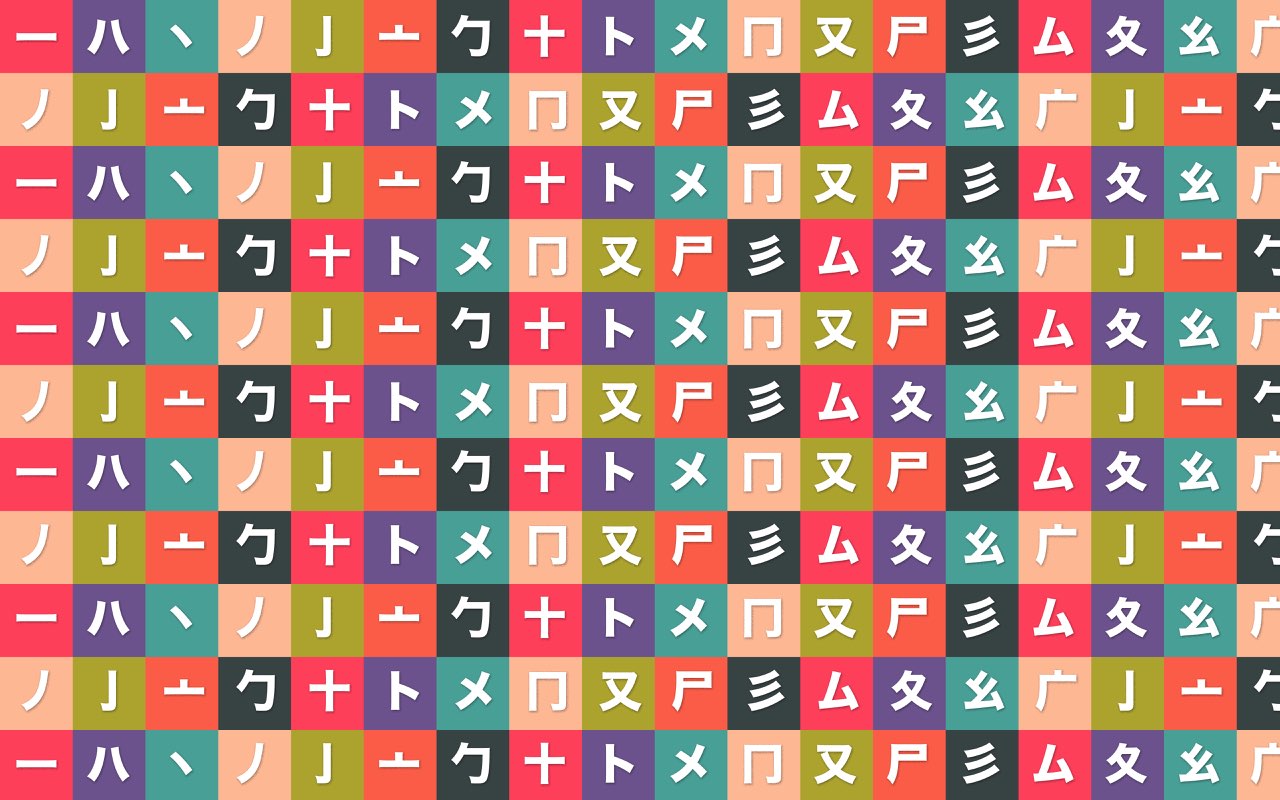
65 INFO KANJI MNEMONICS PDF DOC DOWNLOAD ZIP Kanji
The Japanese language has a system of honorific speech, referred to as keigo ( Japanese: 敬 けい 語 ご, literally "respectful language"), parts of speech that show respect. Their use is mandatory in many social situations. Honorifics in Japanese may be used to emphasize social distance or disparity in rank, or to emphasize social intimacy.

Learn Basic Japanese, How To Speak Japanese, Basic Japanese Words
Japan Society currently offers 12 comprehensive levels of Japanese, as well as a variety of specialized courses and workshops including shodō (Japanese calli.
I made an Allinone "Hiragana+Katakana+Basic Kanji" printable letter
Kanji: Ideographic alphabet of Chinese origin. Every character represents an idea or concept. Hiragana: Phonetic alphabet used mostly in combination with kanji. Katakana: Phonetic alphabet used to represent foreign words, places, onomatopoeias, etc. If the word is represented in kanji, the reading section shows how this word is read.

How To Read And Write In
[ た 食 · べ · る] » Present Indicative Negative Form 食 べない [ た 食 · べ · な · い] » Past Indicative Form 食 べた [ た 食 · べ · た] » Past Indicative Negative Form 食 べなかった [ た 食 · べ · な · か · っ · た]
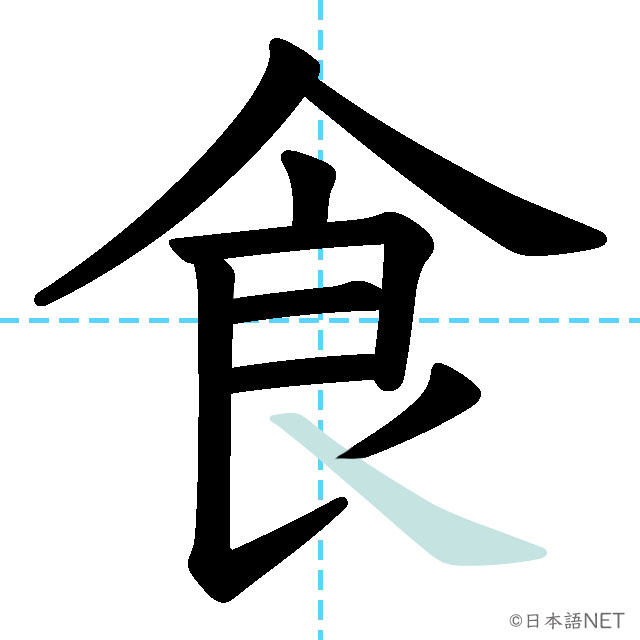
【JLPT N5 Kanji】食 NIHONGO NET
Japanese Verbs tabemasu to eat Beginner 1 - Basic Structure [ subject ] wa [ something ] o tabemasu 1. Watashi wa ban-gohan o tabemasu. I (will) eat dinner. 2. Watashi wa niku o tabemasen. I don't eat meat. 3. Watashi wa kinoo Karee o tabemashita. I ate curry yesterday. 4. Watashi wa kinoo Ginza de Furansu ryoori o tabemashita.
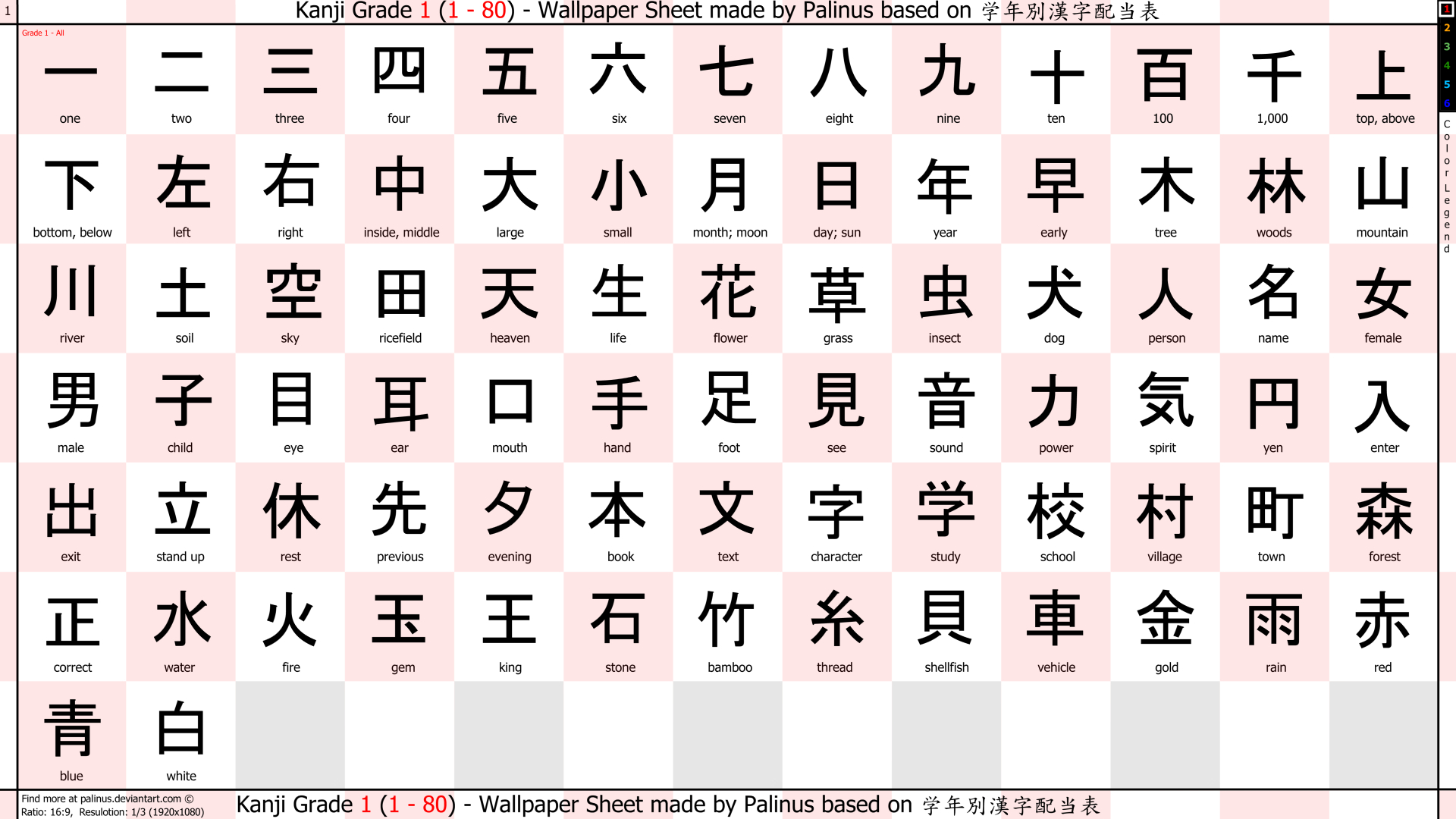
Wallpaper Kanji Training Grade 1 1080p by palinus on DeviantArt
Print out this page , and learn to write the following Japanese language. In this writing, both kanji and hiragana script was used. Tabemasu is "I eat", and Tabemashita means "I ate" in Japanese. The first character is kanji symbol and other 3 are written in hiragana symbols. If you like this lesson, please click "Like", "Tweet" or "G+1" button!

El Kanji del Dia Kanjis nivel 1
Conjugation of Japanese verb staberu - to eat 食べる. The basic form of Group 2 verbs end with either " iru" or " eru". This group is also called Vowel-stem-verbs or Ichidan-doushi (Ichidan verbs). In this lesson, you'll find the full conjugation of the verb 'to eat' in Japanese.
3 Alphabets In Japanese Its ancient history dates back centuries, and
English Meaning (s) for 立てます. ichidan verb, transitive verb. to stand up; to put up; to set up; to erect; to raise (also written as 起てる) to thrust into; to bury into; to dig into. to make (a noise); to start (a rumour); to raise (a cloud of dust, etc.); to cause. to make; to establish; to set up; to develop; to formulate.

Learn Kanji Numbers Stroke Order Japanese Pronunciation
Tabemasu means "to eat". Kaimasu means "to buy". O is the particle which follows the object of the verb to show which the object is. The word order is [subject] wa [time] [object] o verb. When the subject is "I" or "You", it is usually moitted. Since there is not clear distinction between the present and the future tenses in Japanese languge,
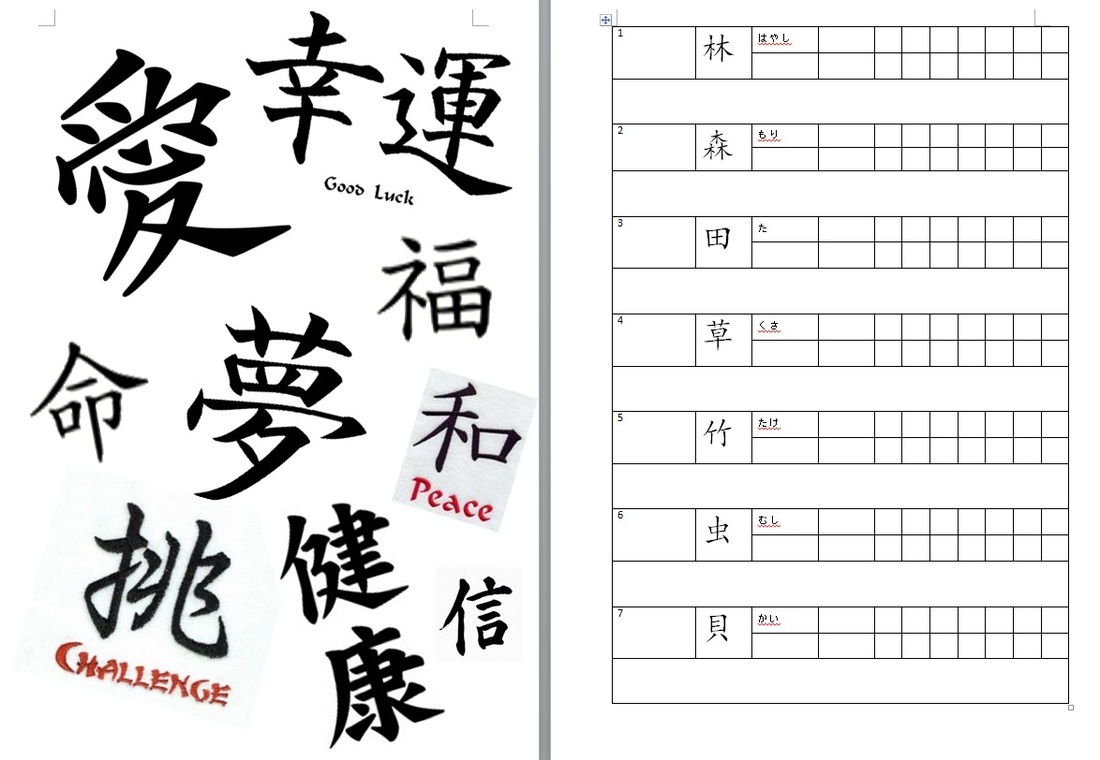
WRITING kanji Japanese Teaching Ideas
たべます - "tabemasu" = to eat ねます - "nemasu" = to sleep します - "shimasu" = to do きます - "kimasu" = to come . Most people when they begin to learn Japanese learn the "masu" form of verbs because they are polite, and easy to conjugate later into past, negative and present continuing tenses.
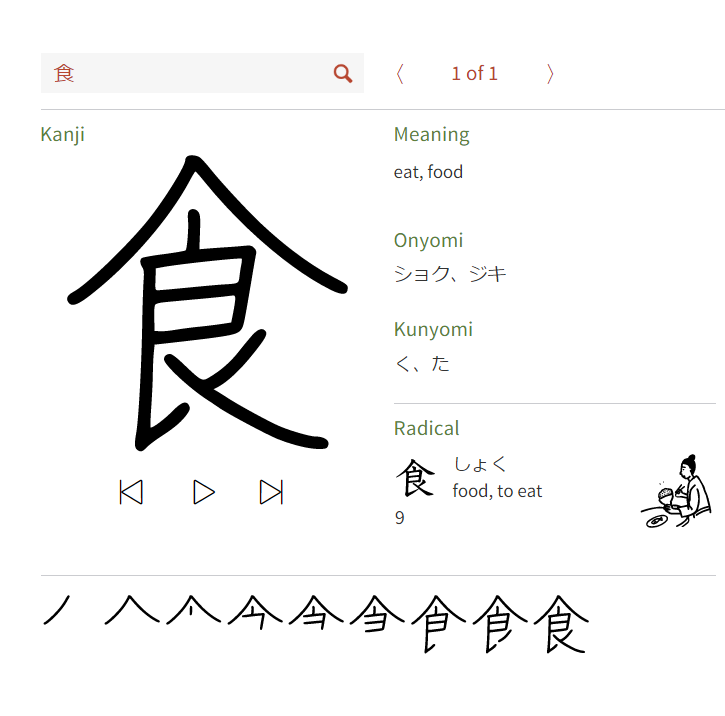
NCEA LEVEL 2 KANJI NIHONGO DAISUKI ! 日本語 だいすき!
Japanese: ·to eat ご飯(はん)を食(た)べる go-han o taberu to eat a meal 箸(はし)で食(た)べる hashi de taberu to eat with chopsticks 今日(きょう)は、寿司(すし)を食(た)べに銀座(ぎんざ)に行(い)きます。 Kyō wa, sushi o tabe ni Ginza ni ikimasu. I'll go to Ginza today to eat sushi. 食(た)べていくために.
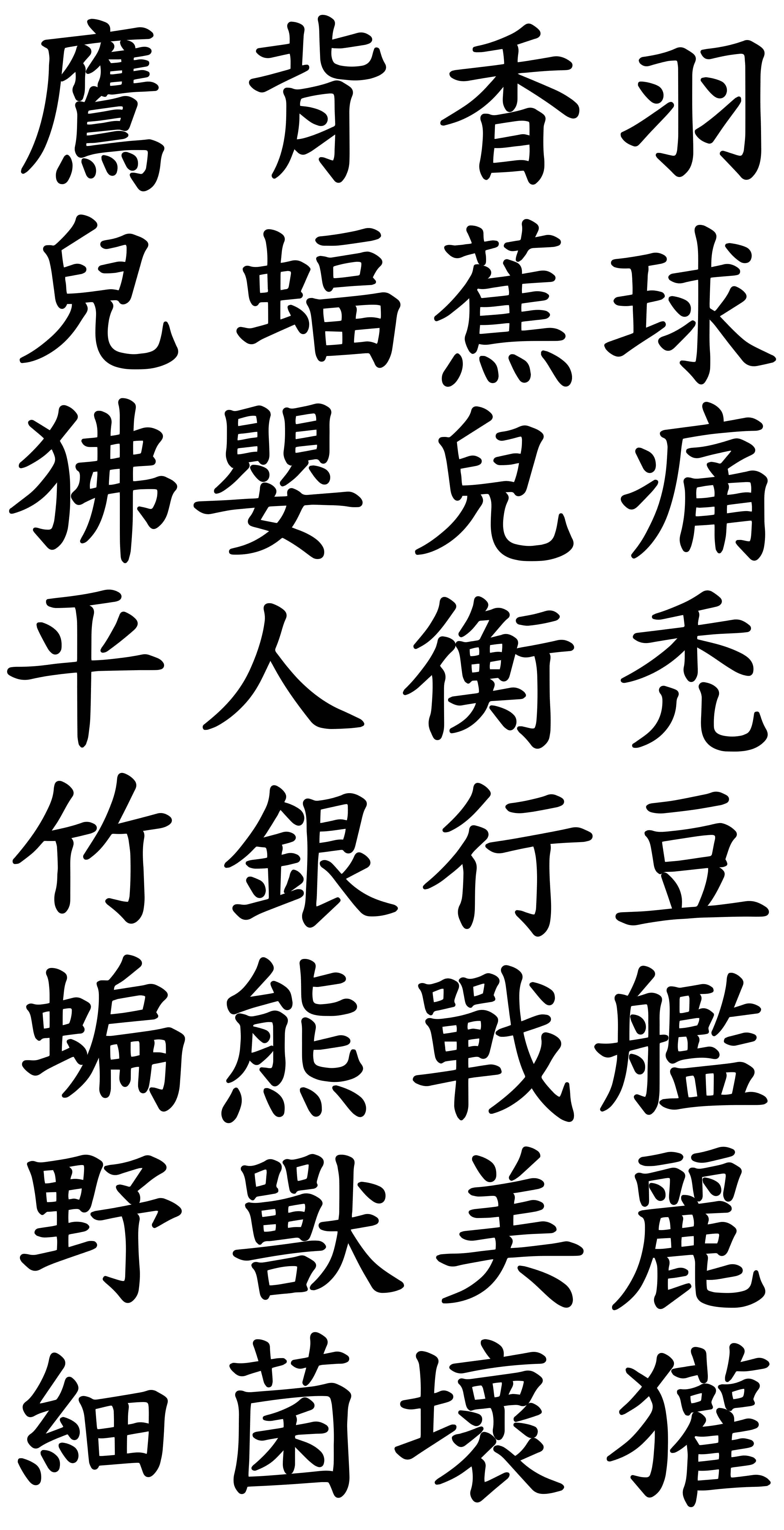
Japanese Writing Letters Alphabet / 2.3 Japanese / Of course ancient
Example for Non-past tense: たべます (tabemasu) can be translated as "will eat" and "eating." As you can see, it can be very confusing to understand whether たべます (tabemasu) is in Present or Future tense. Usually, Japanese speakers would emphasize the context by adding the time words (e.g., now, tomorrow, or 2 pm) or through.